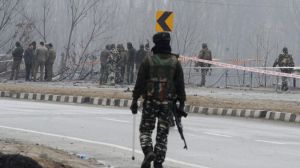New ASEAN emerging out of Myanmar cyclone: Surin
Cyclone Nargis pounded the Irrawaddy Delta and Yangon in early May, leaving more than 133,000 people dead or missing.

ASEAN, often criticised for not dealing firmly with member Myanmar, was ‘baptised’ by its response to the cyclone in the junta-led nation and was ready for new responsibilities, the bloc’s chief said on Wednesday.
Cyclone Nargis pounded the southwest Irrawaddy Delta and the main city of Yangon in early May, leaving more than 133,000 people dead or missing.
Inciting international outrage, Myanmar’s isolated military regime largely barred foreign aid workers from the delta.
But relief workers slowly moved into the region in late May after the junta began to ease restrictions on access, and asked fellow ASEAN nations to coordinate the international relief effort.
“We have been able to open the humanitarian space,” Surin Pitsuwan told a forum in Singapore of the efforts by the Association of Southeast Asian Nations (ASEAN).
“I think that’s the success of ASEAN. I think that’s the resiliency of ASEAN. I think that’s a new ASEAN ready to take on the responsibility placed on it, expected of it.”
Nearly 300 ASEAN assessment team volunteers were now in the delta, working “with full support, collaboration from the government of Myanmar,” said Surin, a former Thai foreign minister.
“It just so happened that we are being baptised by the Cyclone Nargis. That is the test of our new ASEAN,” Surin said.
ASEAN said in early June that its emergency assessment team had begun to deploy in the delta to start a long-awaited assessment of those affected by the storm.
It said then that its advance teams would compile a first-hand ‘progress report’ for an ASEAN Roundtable meeting in Yangon on June 24.
The 10-member ASEAN has often been criticised for failing to act firmly with Myanmar, a member that has frequently embarrassed its neighbours with its refusal to shift towards democracy.
Photos





- 01
- 02
- 03
- 04
- 05


























